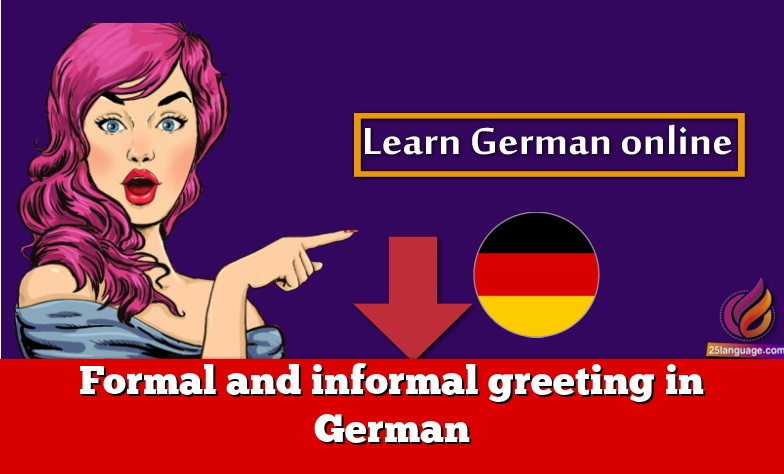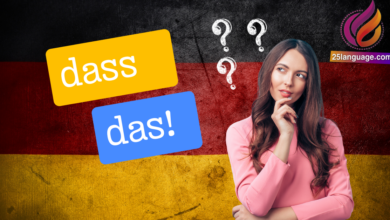Formal and informal greeting in German

Formal and informal greeting in German.In formal settings, greetings adhere to specific conventions that signify respect for social norms and protocols. These formalities surface in various scenarios such as job interviews, meetings, and even electronic correspondence. On the other hand, informal greetings allow for greater freedom and closeness, often encapsulating creativity and personal expression.
Phrases about formal and informal greeting in German
| Formal Greeting | Informal Greeting | English Translation | Context/Usage |
|---|---|---|---|
| Guten Morgen | Morgen | Good morning | Morning greeting |
| Guten Tag | Hi / Hallo | Good day / Hi | Daytime greeting |
| Guten Abend | Abend | Good evening | Evening greeting |
| Auf Wiedersehen | Tschüss | Goodbye | Saying farewell |
| Sehr erfreut | Freut mich | Pleased to meet you | Upon meeting someone for the first time |
| Wie geht es Ihnen? | Wie geht’s? | How are you? | Asking about well-being |
| Danke schön | Danke | Thank you | Expressing gratitude |
| Ja, bitte | Ja | Yes, please / Yes | Confirming or accepting something |
| Nein, danke | Nein | No, thank you / No | Declining something |
| Entschuldigen Sie | Entschuldigung | Excuse me | Getting attention or apologizing |
Sentsnses about formal and informal greeting in German
| Context/Situation | Formal Sentence | Informal Sentence | English Translation |
|---|---|---|---|
| Morning Greeting | Guten Morgen, Herr Müller. | Morgen, Tom! | Good morning, Mr. Müller. / Morning, Tom! |
| Daytime Greeting | Guten Tag, Frau Schmidt. | Hi, Anna! | Good day, Mrs. Schmidt. / Hi, Anna! |
| Evening Greeting | Guten Abend, meine Damen und Herren. | Abend, Leute! | Good evening, ladies and gentlemen. / Evening, folks! |
| Saying Goodbye | Auf Wiedersehen, Doktor Weber. | Tschüss, Tim! | Goodbye, Dr. Weber. / Bye, Tim! |
| Meeting for the First Time | Es ist mir eine Ehre, Sie kennenzulernen. | Hey, schön dich zu treffen! | It’s an honor to meet you. / Hey, nice to meet you! |
| Asking About Well-Being | Wie geht es Ihnen, Frau Keller? | Wie geht’s, Lisa? | How are you, Mrs. Keller? / How’s it going, Lisa? |
Conversation about formal and informal greeting in German
| Situation | Formal Conversation | Informal Conversation | English Translation |
|---|---|---|---|
| Meeting in the morning | A: Guten Morgen, Herr Schmidt.<br>B: Guten Morgen, Frau Müller. | A: Morgen, Max!<br>B: Morgen, Lisa! | A: Good morning, Mr. Schmidt.<br>B: Good morning, Mrs. Müller.<br>A: Morning, Max!<br>B: Morning, Lisa! |
| During the day | A: Guten Tag, wie kann ich Ihnen helfen?<br>B: Guten Tag, ich hätte eine Frage. | A: Hi, was geht?<br>B: Hey, ich brauche deine Hilfe. | A: Good day, how can I assist you?<br>B: Good day, I have a question.<br>A: Hi, what’s up?<br>B: Hey, I need your help. |
| In the evening | A: Guten Abend, Frau Doktor.<br>B: Guten Abend, Herr Meier. | A: Abend, wie war dein Tag?<br>B: Abend, ganz okay. | A: Good evening, Dr. [Surname].<br>B: Good evening, Mr. Meier.<br>A: Evening, how was your day?<br>B: Evening, pretty okay. |
| Saying goodbye | A: Auf Wiedersehen, es war mir eine Freude.<br>B: Auf Wiedersehen, gleichfalls. | A: Tschüss, bis später!<br>B: Tschüss, mach’s gut! | A: Goodbye, it was a pleasure.<br>B: Goodbye, likewise.<br>A: Bye, see you later!<br>B: Bye, take care! |
| Introducing | A: Es ist mir eine Ehre, Sie kennenzulernen.<br>B: Sehr erfreut, die Ehre ist ganz meinerseits. | A: Hey, schön dich zu treffen.<br>B: Freut mich auch! | A: It’s an honor to meet you.<br>B: The pleasure is all mine.<br>A: Hey, nice to meet you.<br>B: Same here! |
| Asking about well-being | A: Wie geht es Ihnen heute?<br>B: Mir geht es gut, danke. Und Ihnen?<br>A: Mir auch, danke. | A: Wie geht’s?<br>B: Alles klar, und dir?<br>A: Läuft. | A: How are you today?<br>B: I’m well, thank you. And you?<br>A: Me too, thank you.<br>A: How’s it going?<br>B: All good, you?<br>A: Same. |
Ultimately, both formal and informal greetings can offer deep insights into social dynamics and interpersonal relations. By understanding these nuances and distinctions, we can better interact with others and comprehend the context in which we operate.




























